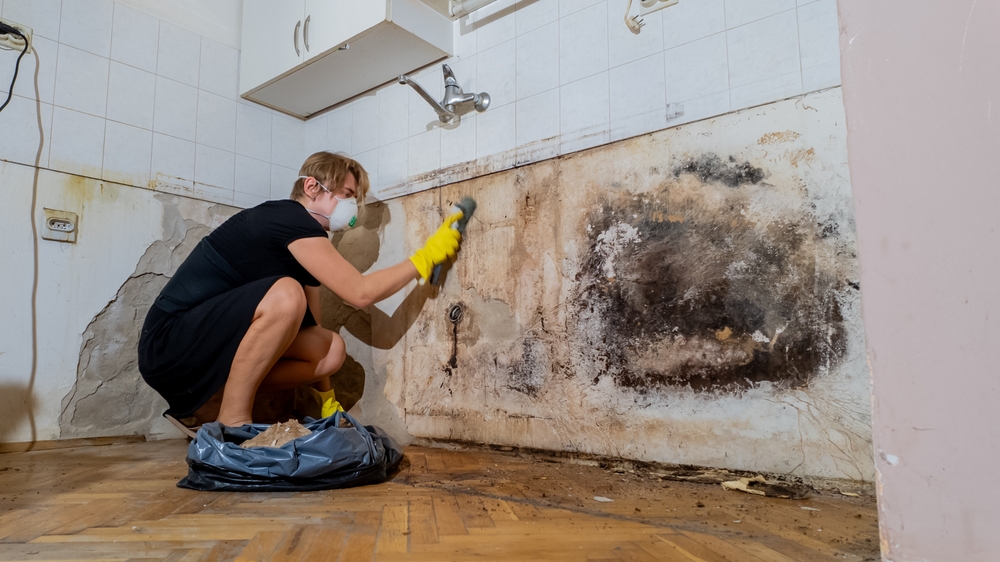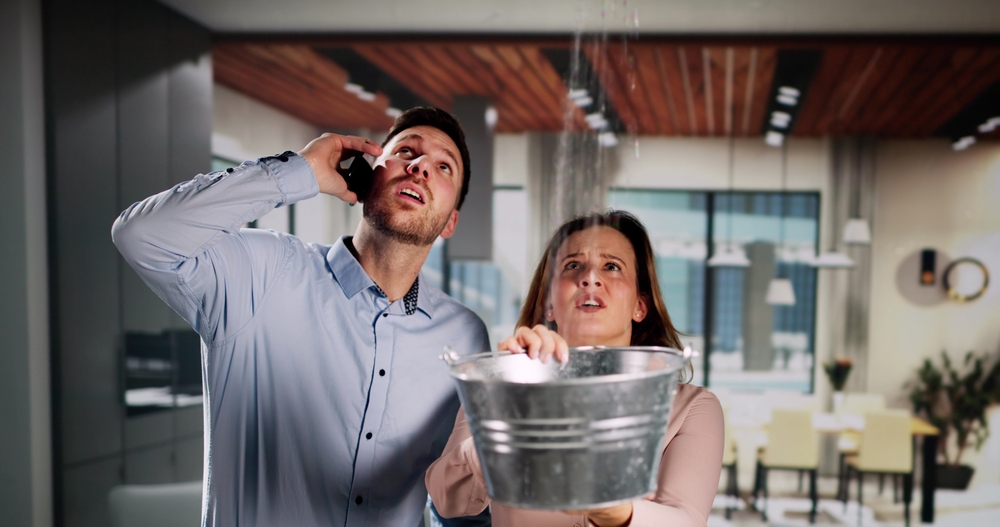Introduction
Maintaining the safety and integrity of your house depends on future water damage prevention. Structural problems, mold development, and expensive repairs can all follow after water damage. Ignored, it can seriously compromise the value of your house and the health of your family. Early actions will help you to have peace of mind and lower your future water damage risk.
The Long-Term Consequences of Water Damage
Water damage can cause long-term issues as well as destroy your possessions. For instance, mold can create health risks in wet environments. Weak foundations could cause structural problems, rendering your house dangerous. Fixing these issues might take time and money. Consequently, it’s best to avoid water damage than cope with the fallout afterward.
Water seeping into your house could undermine the floor, ceiling, and wall structural integrity. Metal can rust and wood can decay, which would provide hazardous circumstances. Moreover, the presence of water might draw pests like termites, which might compromise your home more greatly. Dealing with these problems can also emotionally toll you and your family greatly, causing worry and anxiety.
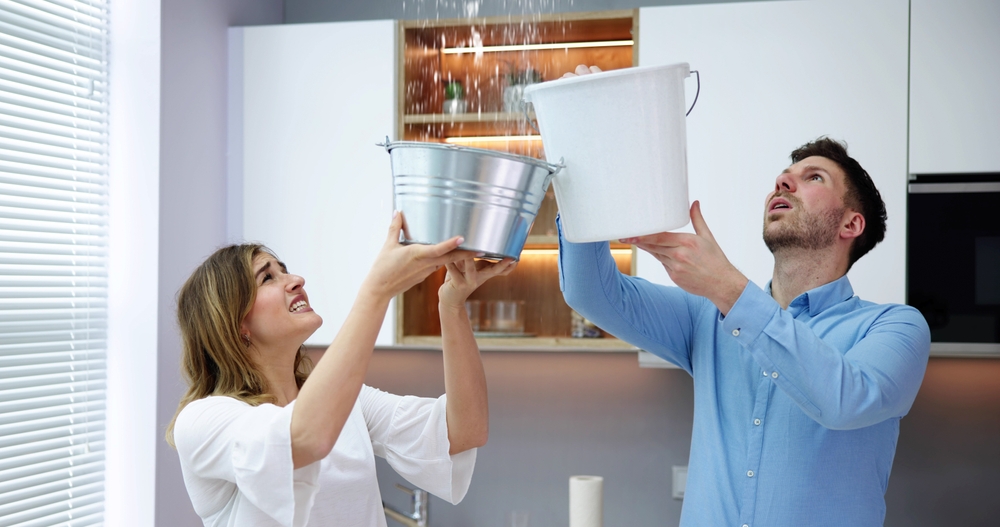
The Benefits of Proactive Measures
Acting to stop water damage not only saves money but also shields your house and family. By means of proactive steps, you may raise the value of your house, extend its lifetime, and improve the living conditions. Moreover, being ready will enable you to handle unforeseen problems with efficiency, so minimizing possible damage.
These steps can help you to establish a better and safer living surroundings. This helps your community as well as yourself by lowering the possibility of water damage-related issues affecting nearby houses. Knowing that you have done all necessary to guard your house from future water damage will also make you more comfortable.
Understanding the Root Cause
First you must know the main causes of water damage if you are to properly stop it. Finding out where the water damage came from is absolutely vital. Common references include:
- Plumbing Problems: Significant water damage can result from leaking pipes, malfunctioning fixtures, or antiquated plumbing systems. Little leaks can add up over time and cause significant, perhaps undetectable damage.
- Structural Defects: Foundation or wall cracks could let water flood your house. Your house should be routinely checked for any evidence of settling or cracking.
- Poor Drainage: Lack of drainage around your house could let water to gather and seep into your land. Inappropriate grading, blocked drains, or inadequate gutters could all cause this.
Addressing Underlying Issues
Once you find the source, you really should take care of any underlying problems. This could call for fixing structural flaws by a constructor, calling a plumber to repair leaks, or enhancing the drainage system of your house. By addressing these issues head-on, one can help avoid water damage going forward.
For instance, it could be advisable to pay for a thorough plumbing inspection if you find persistent problems with pipes. Apart from obvious difficulties, a trained plumber may also spot other flaws in your system that might cause more problems down road. In the same vein, should you discover flaws in your foundation, you should have an expert assess them and suggest required repairs.
Prevention Tips
Understanding the need of tackling the underlying causes of water damage will help you to explore certain preventive strategies.
1. Plumbing Maintenance
Stopping water damage requires consistent plumbing maintenance. Here are some guidelines:
- Regular Inspections: Plan frequent pipe and fixture inspections for your building. Look for wear and tear indicators including corrosion or rust. Pay particular attention to difficult-to-reach spots since leaks there could go undetectable for a lengthy period of time.
- Promptly Address Leaks: Address a leak or drip right away. Over time, even a minor leak might cause notable water damage. Until you can see a professional, use temporary fixes like plumbing tape.
- Replace Old Components: Think about replacing your outdated or worn-out plumbing fittings. Usually more efficient and less prone to fail are newer models. Furthermore saving money on your water cost is by improving your plumbing.
2. Water Heater Maintenance
Furthermore prone to water damage if neglected is your water heater. Use these pointers:
- Annual Inspection: Professionals can look for other problems including silt accumulation and leakage. Early failure of your water heater may result from sediment accumulation making it work harder.
- Timely Replacement: To stop possible leaks, think about upgrading your water heater—usually aged over 10 to 15 years. More recent versions also have better energy efficiency, thereby saving you money over time.
3. Appliance Maintenance
Should they break down, household appliances can cause water damage. Here’s how to control them:
- Regular Cleaning: Frequent cleaning Frequent cleaning of household appliances—including washing machines and dishwashers—helps to avoid leaks and obstructions. Look for wear on hoses; replace them if they exhibit damage.
- Address Malfunctions Promptly: See a professional for repairs if you find any indicators of malfunction, including odd sounds or leakage. Don’t overlook minor difficulties; they can soon turn into more major ones.
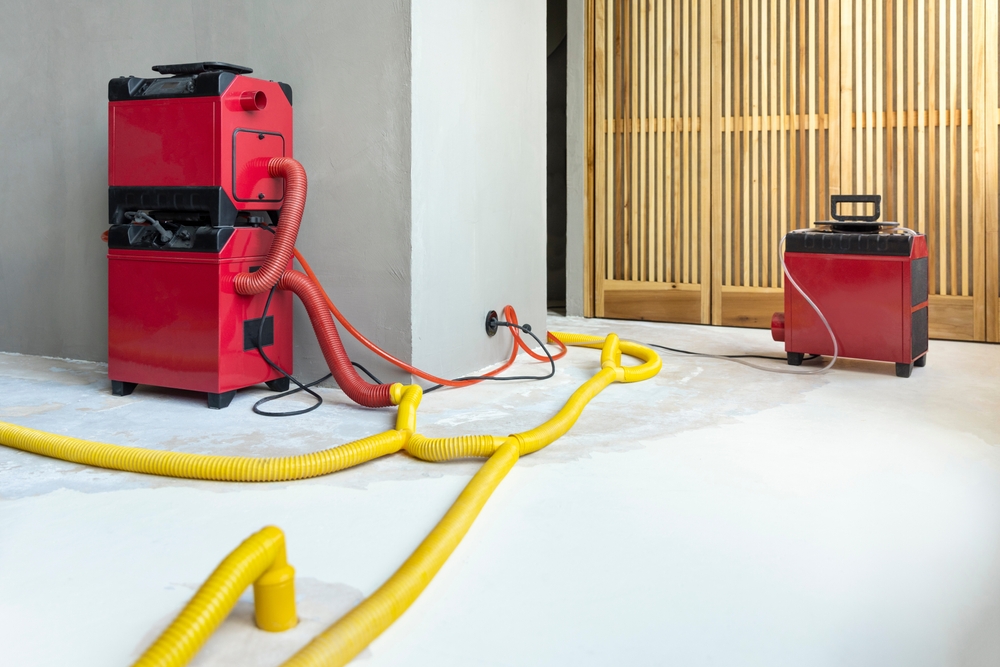
4. Roof and Gutter Maintenance
Protection of your house from water damage depends critically on your roof and gutters. Following these basic maintenance guidelines will help:
- Regular Roof Inspections: Frequent roof inspections help you to find missing or broken shingles. If so, hire a professional. Inspections ideally done following major storms help to identify any possible damage early on.
- Clean Gutters and Downspouts: To guarantee correct drainage, clear trash from your downspouts and gutters. Clogged gutters run the danger of causing water to pool around your house, therefore damaging foundations.
- Ensure Proper Drainage: To stop leaks from gutters pointing water away from the base of your house, Extenders on your downspouts will enable you to help direct water farther away.
5. Humidity Control
Mold development and water damage can result from too much humidity. to preserve appropriate humidity levels:
- Use Dehumidifiers: Dehumidifiers help to lower moisture levels in wet places like laundry rooms and basements. Select versions that will efficiently fit the dimensions of your area.
- Improve Ventilation: Make sure your house vents correctly. In places like bathrooms and kitchens likely to be wet, open windows and run exhaust fans. To boost airflow, think about adding fans or vents.
6. Regular Inspections
Regular house inspections enable you to find possible problems before they become major ones:
- Look for Signs of Water Damage: During your inspections look for wet areas, mold, and water stains. These symptoms can point to underlying issues demanding quick action.
- Address Problems Immediately: Act right away if you find evidence of water damage. Ignoring these indicators can result in more involved and expensive repairs.
7. Landscaping and Grading
Your danger of water damage can be much reduced by careful grading and landscaping around your house. Here are several techniques:
- Grade Your Yard: Make sure the land slopes away from your foundation in Grade Your Yard. This stops pooling of water around your house. If needed, you can evaluate and change the grading of your yard by working with a landscaping specialist.
- Avoid Planting Trees Near Your Home: Tree roots can compromise plumbing and your foundation. Choose plants that won’t compromise the integrity of your house.
8. Seal Openings
Look for any openings in your house where water may find entrance. These might include:
- Windows and Doors: Check that doors and windows are correctly sealed. To stop leaks, replace caulk and aged weatherstripping.
- Foundation Cracks: Any apparent fractures in your foundation should be filled with the suitable sealant. See a professional to evaluate and fix more extensive cracks.
Emergency Preparedness
Apart from preventive actions, being ready for an emergency can enable you to reduce damage should water problems develop.
Creating a Water Damage Emergency Plan
Plan ahead on what to do should a water crisis strike. This strategy ought to comprise:
- Emergency Contact Information: Keep a prominent list of your emergency contacts—plumbers, contractors, insurance agents—in a handy spot. Make sure everyone living in your house knows where to look for this material.
- Shutting Off Water: Find out how to stop the water flow to your house. In the event of a burst pipe, this information can save you time and stop major damage. Periodically turn off your main water valve to become accustomed with the operation.
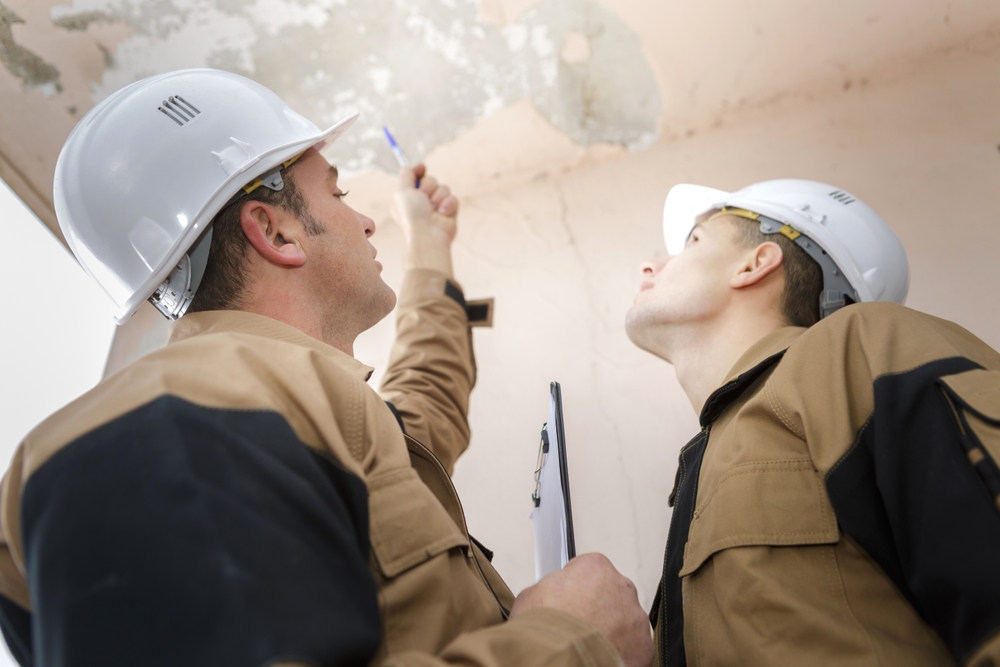
Emergency Kit
Emergency Kit Think about assembling a kit for emergencies comprising:
- Flashlights and Batteries: Flashlights and batteries will enable you to safely negotiate a power loss.
- First Aid Supplies: Make sure you always carry a basic first aid pack close by.
- Waterproof Bags: Keep waterproof bags to hold critical papers or goods should floods strike.
Conclusion
Maintaining the value of your house and guaranteeing the safety of your family depend on protecting it from future water damage. Your risk will be much lowered by knowing the underlying causes of water damage and acting early. Frequent maintenance, inspections, and emergency readiness will help guard your house against next water damage.
It’s time to act now. Plan upkeep, check appliances and plumbing, and arrange a professional house inspection. Knowing that you have taken action to guard your house from water damage can help you to experience peace of mind. Start protecting your house right now; wait until it is too late!
These actions not only safeguards your property but also help your family live in a cleaner surroundings. Being alert and proactive can help you to design a comfortable and safe house that will last. Recall, always better than repair is prevention. Today protects your house for a worry-free tomorrow!
Philadelphia Restoration Services
https://www.google.com/maps?cid=3399342399556699153
+1 267 668 0013
https://philadelphiarestorationservices.com/

